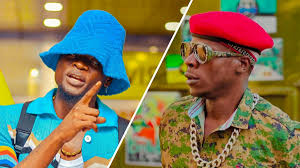An Optimist’s Views On West Africa’s Military Coups And Why They Worsen An Already Bad Situation For West Africa And Africa (Part I) -By Andrew Besi
Nearly 24 months ago, on 5th September 2021, news reached us that Prof. Alpha Conde of Guinea had been overthrown by his Special Forces Commanders led by Col. Mamady Doumbouya. This coup was the second one in West Africa following the August 2020 coup in Mali.
Many are following the happenings in West Africa, where so far, 8 military coups have taken place in less than 3 years. All these coups have been in former French colonies.
As far as I can tell, the majority of citizens in these countries are fed up with living conditions that are typical of economic underdevelopment while their political elite delight in luxury’s lap. This disconnect between the political elite and the citizens has its roots in France’s unfortunate and unfair policy of Francafrique (Françafrique).
This phrase was first used by Ivory Coast’s independence leader Félix Houphouët-Boigny in 1955. Indeed in April 1957, on his first trip abroad as President, Kwame Nkrumah arrived in Ivory Coast and made a wager with Houphouët-Boigny then serving as a minister in the French government. Houphouët-Boigny stated: “You are witnessing the start of two experiments. A wager has been made between two territories, one having chosen independence, the other preferring the difficult road … with the metropole of a community of men equal in rights and duties…”
In choosing to remain part of the “metropole of a community of men”, Mr. Houphouët-Boigny was re-echoing a position that was demanded of him by Charles de Gaulle, president of France who, just a year later warned “…what is inconceivable is an independent state which France continues to help.”
On 28th September 1958, 11 West African French colonies; along with Cameroon and Togo; committed to permanent membership of the community (Franco-African community – “metropole of a community of men” –Françafrique). The only exception was Guinea, whose young independence leader Ahmed Sekou Toure dismissed de Gaulle’s community as “a French union re-baptised – old merchandise with a new label.”
Sekou Toure, like Africa National Congress’s founder Pixley Ka Isaka Seme, realised that colonialism, in whichever guise it was presented, ensured that “in the land of their births, Africans are treated as hewers of wood and drawers of water.”
He understood that African Resistance, right from 1912, had, as President Museveni puts it, five aims: “to expel the imperialists from Africa (decolonisation); in order to do that, the freedom fighters had to unite the African Peoples in each territory (colony) by emphasizing Patriotism (the unity of all the people as opposed to tribalism – the word being used was “African Nationalism)” In other words, to borrow from Pixley Ka Isaka Seme, African Resistance was not a “clamor for social equality” but an “ambition to be permitted to engage in International Trade.”
Therefore, what has happened in Mali, Guinea, Burkina Faso, Niger, Chad, and now Gabon is not entirely surprising. It has its roots in a very demeaning anti-African French policy now brought to the fore by a changed field of geopolitical contestation. This geopolitical contestation, coming on the back of sluggish European economic growth on account of Covid19 as well as a new phase of America’s desire to shift the balance of power within Europe by weakening Germany and France and strengthening Poland, later on Hungary and Turkey as counters to the re-emergence of Russia as a military and economic power is in my view the principal driver of these “revolutions.”
However, we must now evaluate these “revolutions” to see if they hold true to the ideals of African Resistance fighters. We must interrogate if these revolutions speak to the political and economic integration of either the whole of Africa as advocated for by Osagyefo Kwame Nkrumah or in parts (regions) as advocated for by Mwalimu Julius Nyerere.
Why integration?
While addressing the 32nd African Union Heads of State summit in February 2019 in Addis Ababa, President Museveni stated: “There are two issues that are crucial for our future. These are political and economic integration of Africa. Our view is that African integration means three things; prosperity, security, and fraternity.”
Indeed, a 2017 article by Ms. Karen McVeigh published by The Guardian titled ‘World is plundering Africa’s wealth of billions of dollars a year’ stated “African countries received $162bn in 2015, mainly in loans, aid and personal remittances. But in the same year, $203bn was taken from the continent, either directly through multinationals repatriating profits and illegally moving money into tax havens, or by costs imposed by the rest of the world through climate change adaptation and mitigation.”
Aisha Dodwell, campaigner of Global Justice – one of the authors quoted by McVeigh was more blunt, stating: “This research shows that what African countries need is for the rest of the world to stop systematically looting them. While the form of colonial plunder may have changed over time, its basic nature remains unchanged.”
Of course, Africa has made great strides in Integration. The 2022 Africa Regional Integration Index (ARII) observed thus: “ECOWAS, COMESA, and EAC performed best in trade integration, with scores above 75%. The three have been able to implement essential steps for achieving trade integration such as the free trade zones and a common external tariff, among others.”
Perhaps then, this explains why ECOWAS and indeed many of Africa’s incumbent leaders are not lining up to embrace and congratulate this new breed of young African “Revolutionaries”. Indeed, on account of the successes that Africa is making towards Regional and continental integration through the Africa Continental Free Trade Area (AfCFTA), it is easy for one to concur with President Museveni and state that, for now, we “do not know the ideological position of the coup-makers. There are, however, clues that show that they may not be part of the freedom fighters.”
Indeed it is telling that at the time of his ouster, Prof. Conde was advocating for a federation of the Mandingo, Fulani, and other cross-border communities within West Africa with a view to forming a larger political union.
It is this that now brings me to the idea that the disaster of France’s Francafrique policy has significantly contributed to these West African colonies becoming the new staging ground for a geo-political contest between the Anglo allies of the USA, United Kingdom, and Australia and their allies on one hand, and then Russia, China and their allies on the other. And for now, these new “revolutionaries” are increasingly turning to Russia.
Whereas, it is true that all African countries are forging relationships with countries on both sides of this East-West divide, it should be noted that the correct position should not be to be either pro-East or pro-West, pro-Capitalist or pro-Socialist but rather be pro-African.
All bilateral and multilateral agreements must seek to grow Africa’s industrial base with a view to the universal realisation of socio-economic transformation. Any agreement that only benefits a select few – in other words, that creates a socio-economic disconnect between the masses and the political elite – is flunkeyism. It is a betrayal of independent-thinking African Revolutionaries like Sekou Toure and Amilcar Cabral whose defeat of the Portuguese in November 1970 and January 1973 respectively caused the eventual overthrow in Portugal of the fascist ‘Professorio Doctorio’ Caetano and set the stage for victory in Mozambique and Angola in, respectively, June and November 1975.
Tomorrow, we will examine how corruption is fueling citizen discontent in Africa and the danger it poses to political and therefore, economic stability. We will also show why military coups, unlike a protracted peoples’ struggle, do not yield any long-term benefits.














































Discussion about this post